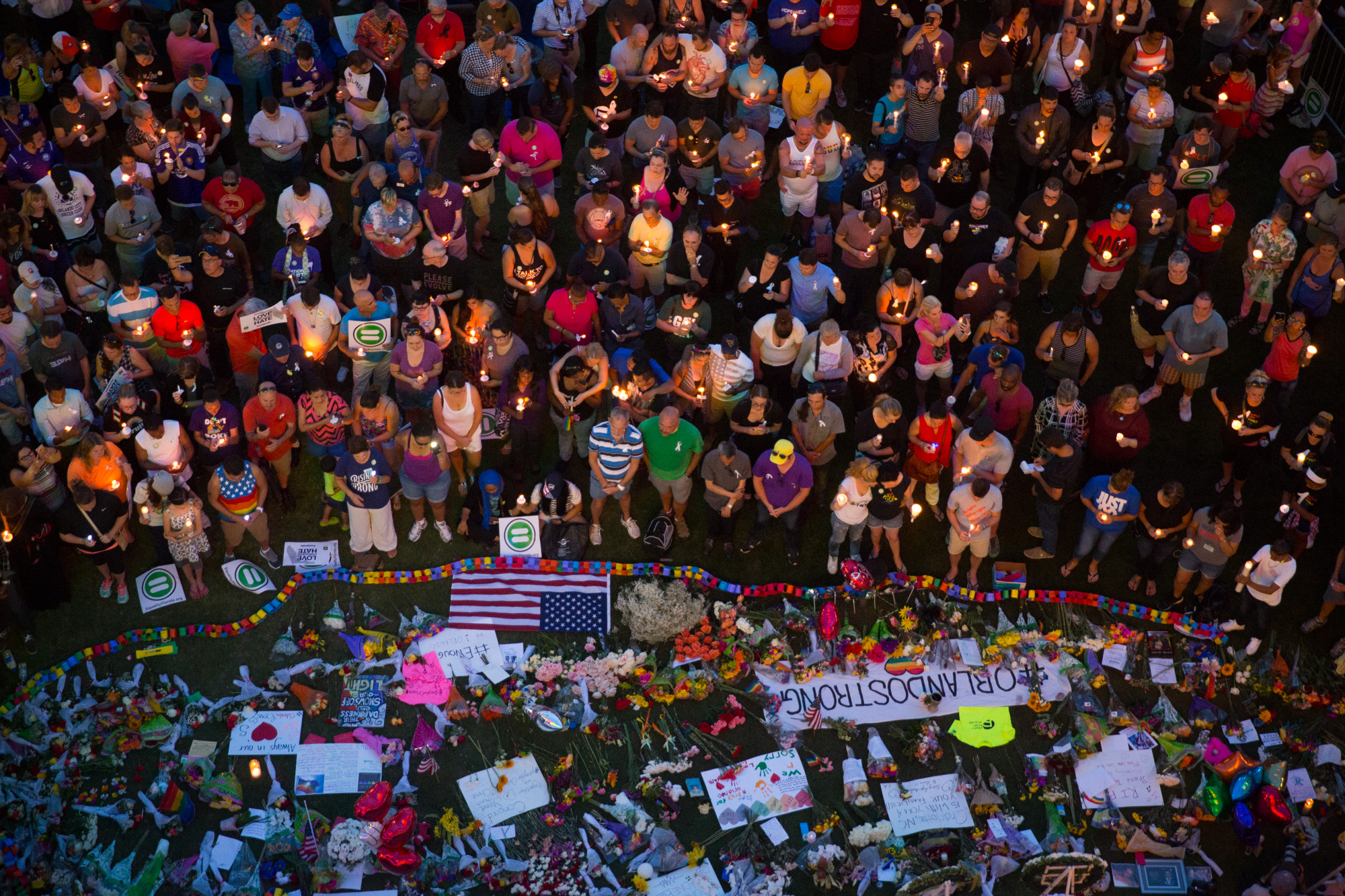Orlando nightclub shooting of 2016 was one of the deadliest mass shootings in the history of the United States. Early on the morning of June 12, 2016, a gunman attacked patrons of Pulse, a popular gay nightclub in Orlando, Florida. He shot about 100 people, killing 49, before he was killed by police.
The attack.
At about 2 a.m. on June 12, the shooter, 29-year-old Omar Mateen, arrived at the Pulse nightclub just south of downtown Orlando. The club, which was popular among gay men and women, was hosting a Latin-themed dance night. Mateen was armed with a semiautomatic rifle and a handgun and carried additional rounds of ammunition. After he entered and began to shoot, a security guard ran toward the entrance from the parking lot. The two men exchanged fire before Mateen made his way further into the nightclub. Mateen killed and wounded many people as he fired inside the nightclub. Many people were able to flee, but others were trapped inside. Police entered the club at about 2:08 a.m. They exchanged fire with the shooter, trapping him in one end of the building, and evacuated survivors from the main area of the club. Over the next hour, scores of officers from the Orange County Sheriff’s Office and the Orlando Police Department arrived at the scene. Authorities and private citizens worked together to treat the wounded and bring them to a nearby hospital.

By 2:20 a.m., the shooting had stopped. The gunman had barricaded himself in a bathroom. He held about 30 club-goers hostage before making a series of 911 (emergency) calls to police. He told a police dispatcher that he had set explosives in a vehicle in the club’s parking lot. He also threatened to outfit hostages with explosive vests. Just after 5 a.m., a police SWAT team broke through a club wall with an armored vehicle, and police engaged in a firefight with the gunman. According to official reports, police shot and killed Mateen at about 5:15 a.m.
Investigation and aftermath.
Local police and federal law enforcement launched an investigation into the attack. They conducted interviews with associates of the shooter, who had worked as a security guard. Co-workers described Mateen as angry and short-tempered. He had allegedly expressed hatred toward such groups as homosexuals, Jews, women, and African Americans. Mateen, a Muslim and the son of Afghan immigrants, also apparently held sympathies with Islamic terrorist groups. The Federal Bureau of Investigation had conducted investigations into possible terrorist ties to Mateen in 2013 and 2014 but had failed to find conclusive evidence linking him to a terrorist group.
In the phone calls Mateen made to police in the midst of his attack, he expressed support for the Islamic State, a radical militant Islamic group. The Islamic State (also sometimes called ISIS or ISIL), a terrorist group based primarily in Iraq and Syria, had called on its sympathizers in Europe and the United States to carry out attacks on civilians. Investigators believed, however, that the group did not aid Mateen in coordinating the attack.
The shooting sparked an outpouring of grief for the victims and their loved ones. Florida Governor Rick Scott wrote, “This is an attack on our people. An attack on Orlando. An attack on Florida. An attack on America. An attack on all of us.” President Barack Obama urged the country to come together. “In the face of hate and violence, we will love one another,” he said. “We will not give in to fear or turn against each other, instead we will stand united as Americans to protect our people, to defend our nation, and take action against those who threaten us.”
